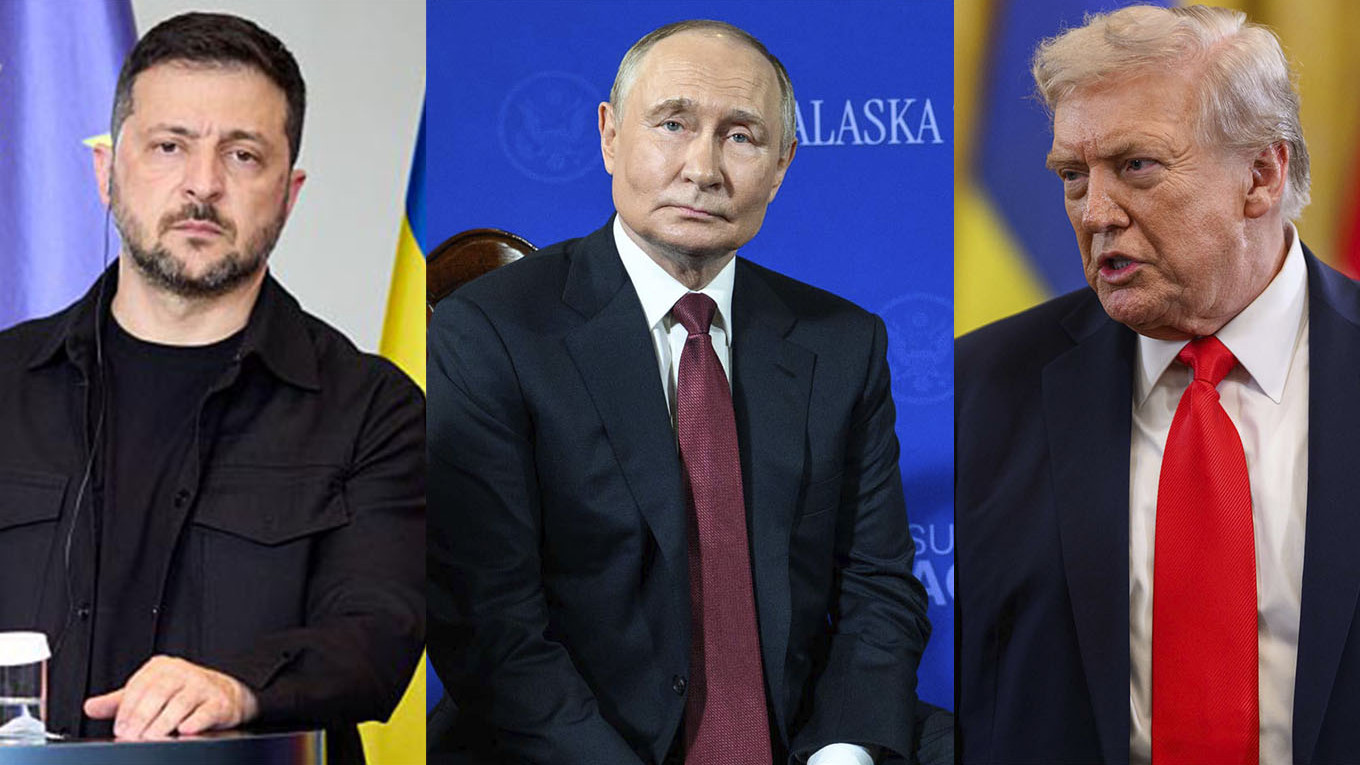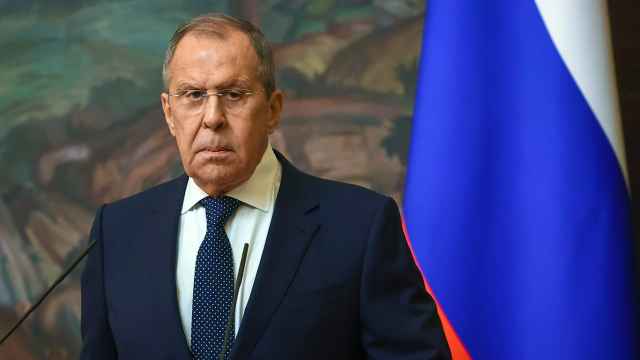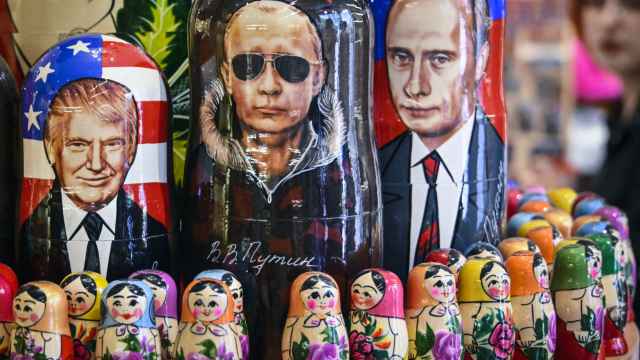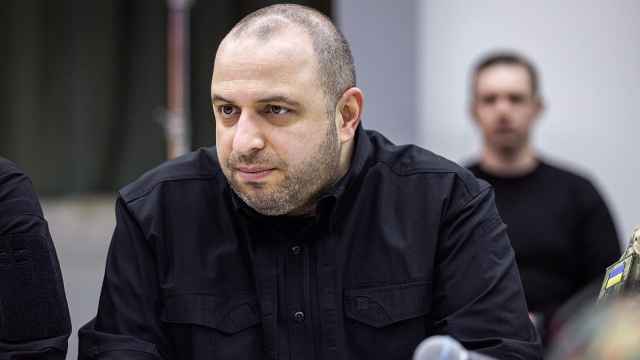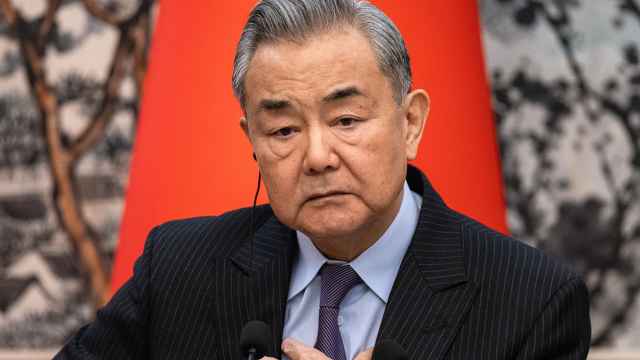After reading dozens of commentaries on the Alaska summit, one theme stands out: there was never much to discuss about actual peace.
The slogan “Pursuing Peace” remained just that — a punchy phrase plastered on banners, thrown together at the last minute. What really mattered were the symbols, the staging and how each geopolitical actor played their part in the performance.
United States President Donald Trump rolled out the red carpet for Vladimir Putin, staged military flyovers and even let the Russian president ride in his armored limousine in a gesture of pure flattery. To many, the ceremonial pomp turning an indicted war criminal into an honored guest looked grotesque. Commentators declared, “Trump got nothing, Putin got everything.” But the reading that it was theater without substance misses something essential. For both Trump and Putin, theater is substance. So Trump, too, got his share of the pie.
Later, Trump hosted his Ukrainian counterpart Volodymyr Zelensky and a room full of European leaders in Washington. Once again, choreography competed with diplomacy. Zelensky — chastised back in February for showing up in fatigues — appeared this time in a black suit and shirt. He smiled, thanked Trump at least eight times and even handed over a personal letter for the First Lady. The former actor had adapted his role for a single audience: Donald Trump.
The uncomfortable truth is that Zelensky had no choice but to learn quickly. He has realized the hard way that the European style of diplomacy does not work here. To remain relevant and actually heard in the room he has started to mirror Trump and Putin’s playbook, flexibly deviating from his usual military uniform to wear a suit that will appease Trump and the U.S. media without deviating from his war-hardened image. But for him, this is not about cultivating the image of a global strongman admired on the world stage. It is about something far more immediate and pressing: saving lives and ensuring Ukraine’s survival.
For all their differences, what unites the three — the spy, the actor, and the real-estate magnate — is a shared lesson from their past lives: the art of adapting.
Putin, trained by the KGB, perfected the arts of concealment, mimicry, and adjusting swiftly to shifting political winds. He deploys vague formulas — “useful talks” in a “constructive atmosphere” — that keep doors open and buy time on the battlefield.
Zelensky, the former actor, understands the audience and costume. He shifts personas depending on the stage: in Kyiv, he embodies defiance, while in Washington, he expresses gratitude.
Trump, the businessman, treats politics like a deal where flexibility is required to “get it done.” Like in a real estate negotiation, he flatters the client, projects courtesy and postpones specifics to keep the agreement alive.
What critics saw as humiliation in Alaska — dropping his demand for an immediate ceasefire — was, for him, simply a response to shifting circumstances. For Trump, shameless pivoting is not weakness; it is how you keep the deal moving.
In the shared logic of both Putin and Trump, the Alaska summit was no failure but a necessary diplomatic ritual. The performance itself became the deliverable. The choreography — including the unusually deferential press conference with no questions staged to suit Putin — was the point. There were no results to show, but Trump declared “great progress” had been made. Neither man offered specifics, because specifics tie you down. The mere suggestion that Putin might one day meet Zelenskyy was hailed as already a great achievement.
For Trump and Putin, vagueness means victory. But for Brussels, vagueness means failure. This chameleon-like adaptability — unbound by principles, heavy on symbols but light on substance — often frustrates Europe, which struggles to practice it, leaving its diplomacy ineffective in Ukraine peace negotiations.
European leaders present themselves as rule-bound, focused on outcomes such as ceasefires, timelines, and guarantees, especially when core values are at stake.
European diplomacy is determined to cling strictly to its core ideals: democracy, human rights and freedom. But Putin, a cynical opportunist, scoffs at Europe’s rigidity and ridicules its insistence on upholding those abstract principles. For him, only national interests are legitimate. That is why he praises Trump as a strongman: someone who defends America’s national interests by leaving room for cooperation with Russia. In Putin’s eyes, that makes Trump an equal.
By contrast, Europe’s commitment to liberal values looks to him simply like weakness and posturing — or worse, sabotage. In his worldview, these values are not genuine but hollow slogans, or weapons, deployed to derail real negotiations. Sanctions, arms deliveries and calls for justice all are framed in Moscow not as diplomacy, but as confrontation and politicization, bad faith dressed as morality.
Trump, too, seems to have little patience for Europe’s moralizing. When European leaders pressed in Washington for a ceasefire as the necessary — and moral — first step, Trump dismissed them with a line that sounded like it came from a real estate seminar: “Peace does not need a ceasefire.”
For Putin, who thrives on endless war rather than victory, this was music to his ears. For Europe, it was another reminder that its lines fall flat.
Europe insists that symbols are secondary, that what truly matters is the text of the agreement. But in this theater, substance flows from symbols, not the other way around. Where Europe offered morality and precision, Putin and Trump leaned on history and lavish protocol. Putin invoked the past constantly, reminding Americans of Alaska’s “shared heritage” and wartime alliance, carefully omitting Europe’s decisive role in World War II. Trump, for his part, happily indulged Putin’s obsession with history and ceremony.
Trump and Putin can negotiate — even if they achieve nothing — because they speak the same language of adaptability and theatrical symbolism. Zelensky, out of necessity, is learning to speak it too, and – sadly for world diplomacy – it works.
Europe fails in peace talks not for lack of power, but for refusing to adapt to this style. European leaders seem to arrive with fixed positions and legalistic demands for precision. They almost never improvise, rarely flatter, and cannot bend. And so, while Europe remains the staunchest defender of liberal values and democracy, it appears as a rigid extra in the theater of Ukraine peace negotiations, not a protagonist.
That does not mean Trump and Putin will bring durable peace. Most likely, they will not. For all their adaptability and love of symbols, they seek different goals. The former KGB officer seeks the status quo. The businessman seeks a profitable deal at any cost.
Meanwhile, the war grinds on, measured not in pageantry but in destroyed cities, lost lives, and the survival of a nation. European leaders, for all their principles, noble goals, and power, still seem unable to negotiate their way into real influence.
Tragically, unless Europe learns to adapt, improvise, and perform — without abandoning its core values — it will remain what it was in Alaska and Washington: the most principled audience in the room, and the least relevant player on the stage.
A Message from The Moscow Times:
Dear readers,
We are facing unprecedented challenges. Russia's Prosecutor General's Office has designated The Moscow Times as an "undesirable" organization, criminalizing our work and putting our staff at risk of prosecution. This follows our earlier unjust labeling as a "foreign agent."
These actions are direct attempts to silence independent journalism in Russia. The authorities claim our work "discredits the decisions of the Russian leadership." We see things differently: we strive to provide accurate, unbiased reporting on Russia.
We, the journalists of The Moscow Times, refuse to be silenced. But to continue our work, we need your help.
Your support, no matter how small, makes a world of difference. If you can, please support us monthly starting from just $2. It's quick to set up, and every contribution makes a significant impact.
By supporting The Moscow Times, you're defending open, independent journalism in the face of repression. Thank you for standing with us.
Remind me later.



